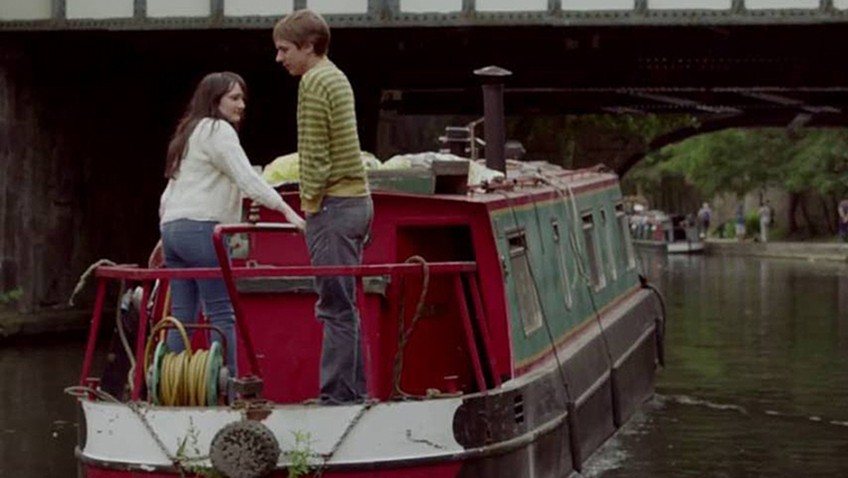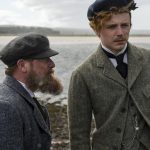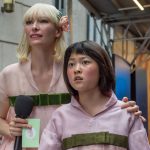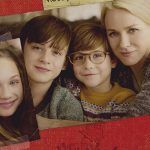Joyce Glasser reviews The Darkest Universe (November 4, 2016)
The Darkest Universe is a low-budget British film shot on the Regents’ Canal in London by Tom Kingsley and Will Sharpe. Sharpe also co-wrote the script, edited the film, and stars in it as the heroic, vulnerable and ultimately derailed protagonist, Zac Pratt in search of his missing misfit sister Alice (Tiani Ghosh). The film is really about co-dependency and how the carer of a dysfunctional and depressed sibling can so easily become dragged down by the weight of the burden. The filmmakers are onto a great premise which they sustain in a credible manner. But Zac 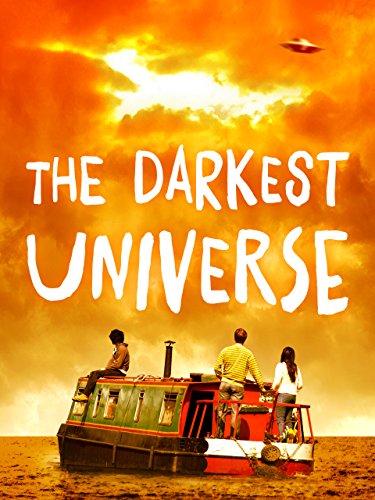 becomes so annoyingly bombastic and the film so chopped up in time that any curiosity about the metaphorical mystery of the disappearing boat quickly dissipates.
becomes so annoyingly bombastic and the film so chopped up in time that any curiosity about the metaphorical mystery of the disappearing boat quickly dissipates.
Told in a series of flashbacks reflecting Zac’s mounting frustration (with the police search), guilt (his verbal attacks on Alice) and doubt and loneliness (as he alienates everyone around him), this is the basic story we piece together, although it is not easy to work out the chronology of what came first. Zac (Sharpe) used to be a city trader (although it’s hard to imagine), but apparently gives up his job when his sister Alice goes missing on the canal boat she is renting from him. Before she died, their mother asked her children to promise to look after one another, but Zac gets annoyed with her, as it’s easy to mistake her inability to do or care about anything as laziness and anti-social behaviour.
But when Alice meets a young nerdish drifter named Toby (Joe Thomas), who has a touch of autism about him, she becomes increasingly communicative and responsive and it’s Zac who begins to appear anti-social. In one scene he argues so violently with Alice and, when she intervenes, with his girlfriend Eva (Sophia Di Martino), that Eva ends their relationship. It seems, however, that by rejecting his pathetic attempt at a marriage proposal, Eva had already sent a signal.
In any event, Alice and Toby ask for, and are granted, Zac’s permission to take the boat out for a few days and apparently they do not return. Frustrated with a police detective who tells him that many people who go missing do not want to be found, Zac begins a methodical search, which includes a rigorous schedule of poster tacking. He solicits the help of Toby’s father (Chris Langham) and takes a disastrous side-trip with Toby’s brainy scientist brother who soon grows as tired of the argumentative Zac as Eva had.
The film’s title comes from an illustrated book that Toby had written, and from the title, we can assume that he is a perfect match for Alice, full of dark thoughts. But as the police detective points out, a boat cannot simply disappear in a canal tunnel and until they find a trace of the boat, they are not about to search for its occupants.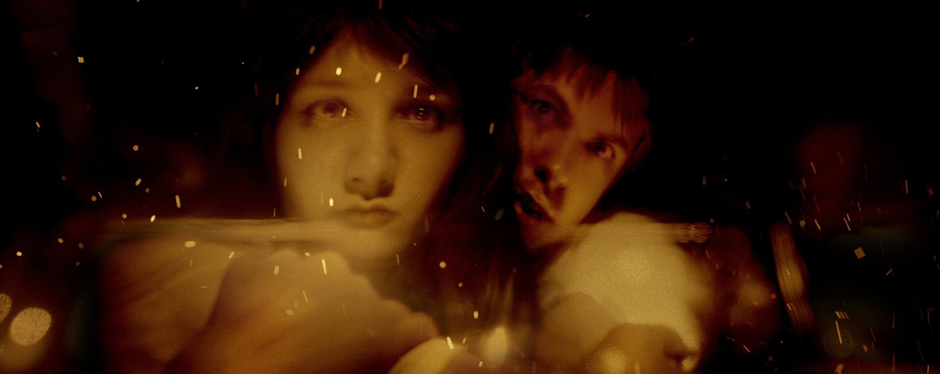
There are absurdist touches to Zac’s search for Alice, a search that takes us camping in the rainy countryside, which, given Sharpe’s many other roles in the film, are a bit self-indulgent. What is lacking is any emotional resonance to make us care about the outcome for any of the characters.
That’s not to say the film is without its moments. Toby’s father is engaging as a quietly philosophical middle class widower. Ruminating on Toby’s personality and the nature of his bond with Alice, he speculates that the lovers ‘became so vague they simply disappeared.’ The filmmakers (and Sharpe as actor) do a good job in tracing Zac’s unravelling as he transforms before our eyes from the curly haired man in control and the provider, to the head-shaven, skinny, wild man who has lost everything, including his own sense of self. The longer the search continues, the less it is about Alice, and the more it is about Zac’s fragility. Is it that the two siblings are really alike but that Alice is more honest? In one scene Zac, who is parading in the countryside with almost nothing on, tells us that perhaps, ‘the best way to look at happiness is as the first stage of sadness.’ At this point he is the one who sounds like he needs looking after, but he’s run out of good will.
You can watch the film trailer here:

